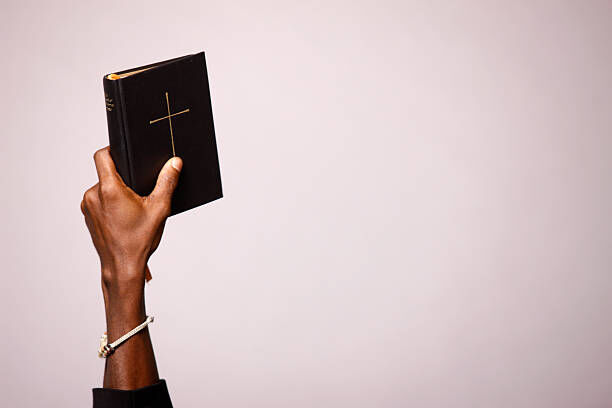Falvey Library and Campus Ministry Host “The Bible and Black Lives Matter” Virtual Talk
February 10, 2021
On Sunday afternoon, Campus Ministry, Black Campus Ministry students and Falvey Memorial Library co-sponsored an event through Zoom called “The Bible and Black Lives Matter,” a talk and discussion led by the Rev. Naomi Washington-Leapheart.
Twenty-eight participants joined the thought-provoking Zoom call during Black History Month, as Washington-Leapheart began the discussion by asking participants to find a word they believed represented the relationship between the Bible and the Black Lives Matter (BLM) Movement. This exercise exemplified the different perspectives people take from both the Bible and the BLM movement. Answers ranged from love and togetherness to confusion and controversy.
Washington-Leapheart is a professor in the Department of Religious studies at the University and the University’s Gospel Choir Director. Washington-Leapheart led the conversation through a series of engaging tweets, memes, and paintings.
After Washington-Leapheart’s introduction, Kate Giancatarino briefly spoke. Giancatarino, Director of the Center for Service and Social Justice within Campus Ministry, prefaced the discussion by inviting everyone to be active in starting important conversations.
The first crucial point that Washington-Leapheart made was that everyone has some investment in politics, regardless of religious stances or consciousness of it.
“We all have investments in politics,” Washington-Leapheart said. “Love is in fact, politics. Grace is politics. You know how we know? Because we know policies that aren’t loving when they are passed and applied. We are living down here on the ground. We are living in politics.”
All of this was said to hone in on how Christianity and politics are tethered, regardless of a common and consistent denial of this. These statements quickly fed into two challenging questions put before the Villanovan community. The first question was, how is Christianity tethered to the ideals of white supremacy, patriarchy, and heteronormativity? The second question posed was, how has Christian identity been violently detached from other identities in service to white supremacy, patriarchy, and heteronormativity?
Washington-Leapheart then began to break down the answers to these questions. She focused on Christianity’s relationship to white supremacy. This relationship includes the Ku Klux Klan, which identifies as a Christian organization, the statement by Alabama clergymen that kindled Martin Luther King Jr.’s “Letter from Birmingham Jail” and the use of prayer in the U.S. Senate Chamber to justify the insurrection of the US Capital by protestors on January 6, 2021.
These points steered Washington-Leapheart to the idea that prayer is not apolitical. The Bible, Christianity, and BLM are connected in a political context.
“The Bible can become a tool, an instrument, a vehicle for, white supremacy, patriarchy, and heteronormativity,” Washington-Leapheart said. “The Bible is a contested text. The Bible is a part of the complication. Because, in fact, you can read the same text that I read, and walk away from the reading, and carry a burning cross to somebody’s lawn in the name of God. Not in 1932, but in 2021.”
Washington-Leapheart continued to explain the complications that the Bible creates in the political context of the USA. Many bishops and church leaders have claimed that BLM does not merit Christian support. BLM dismantles the Biblical definitions of family and champions the celebration of homosexuality, among other things.
To conclude the discussion, Washington-Leapheart encouraged participants to see through the lens of justice.
“An important question could be, what is a just, and perhaps the most just reading of this text?” she asked. “There is hope that that particular representation of Christianity is not the only one there is. Jesus has got to be decolonized.”
Participants left the conversation with gratitude and a deeper understanding of the controversy surrounding the Bible and BLM.







